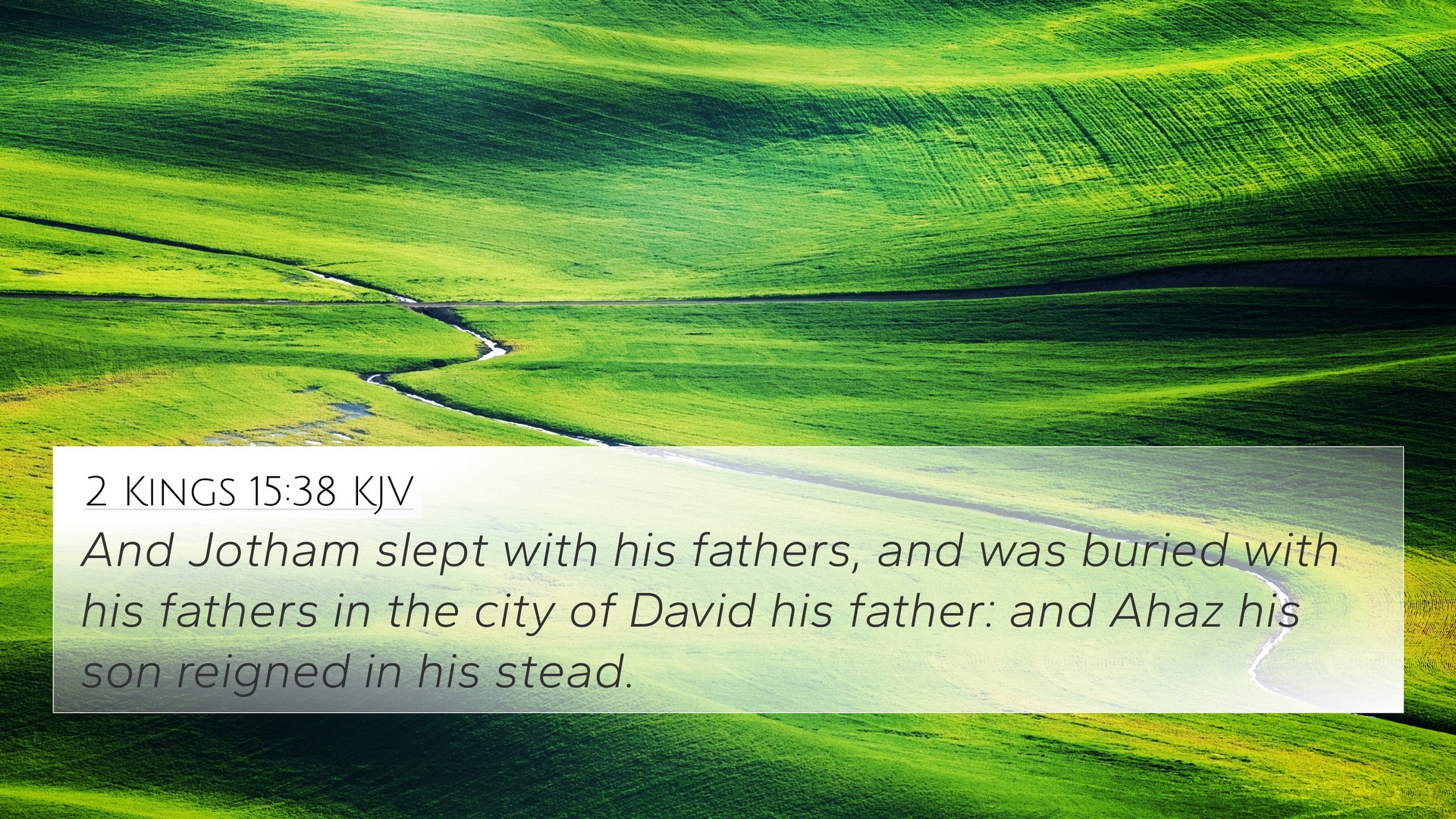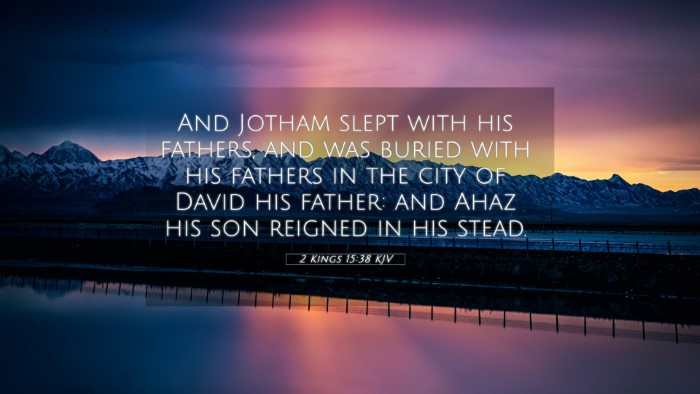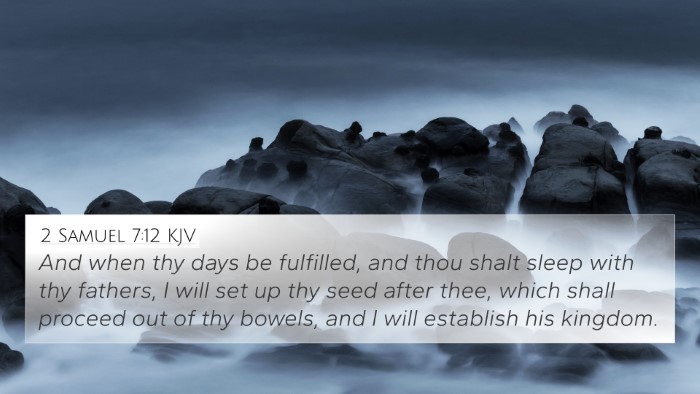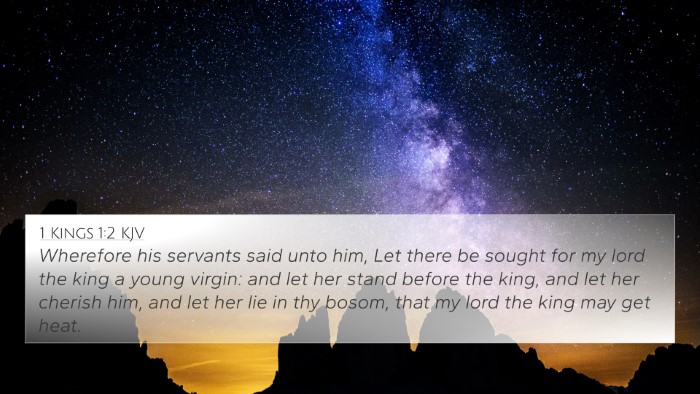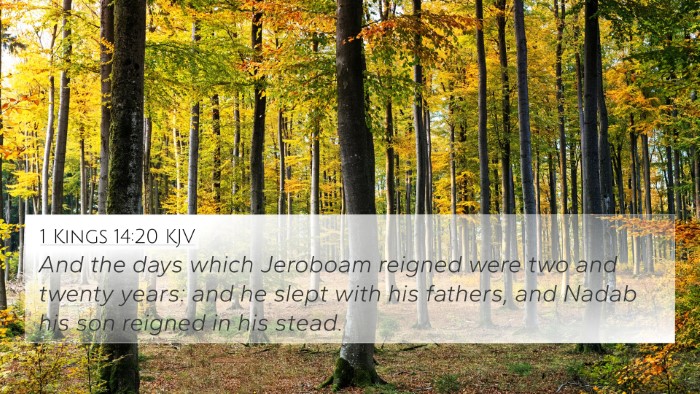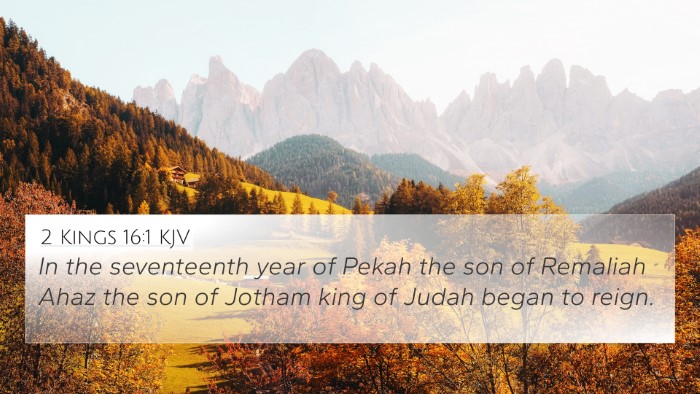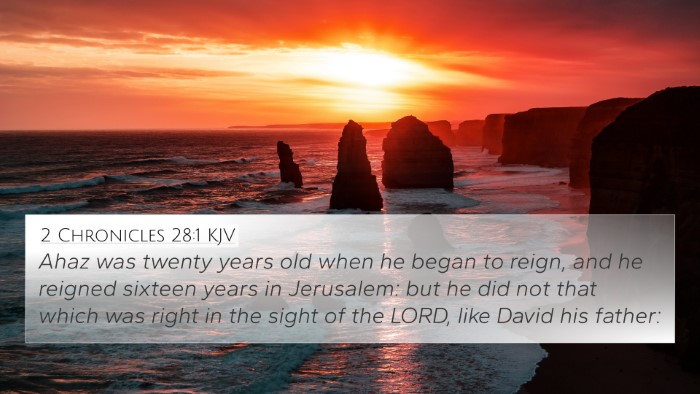Understanding 2 Kings 15:38
The verse 2 Kings 15:38 states: "And Jotham slept with his fathers, and was buried with his fathers in the city of David: and Ahaz his son reigned in his stead."
This passage concludes the account of King Jotham, emphasizing both his death and burial, and the succession of his son, Ahaz. To grasp the significance of this verse, we can explore several key insights through the perspectives of various public domain commentaries.
Key Insights from Commentaries
-
Matthew Henry:
Henry observes that Jotham's death signifies the end of a reign that, while not without faults, was marked by some level of righteousness. His burial in the city of David signifies honor and a connection to the covenantal promises made to David and his lineage. The transition to Ahaz highlights the continuity and challenges of leadership in Israel.
-
Albert Barnes:
Barnes points out the significance of the lineage as crucial for understanding the kingship in Israel. Jotham's burial alongside his ancestors signifies his rightful place within the Davidic line. The mention of Ahaz as his successor prepares the reader for the subsequent narratives, which involve a shift towards greater disobedience and consequences for Israel.
-
Adam Clarke:
Clarke elaborates on the importance of Jotham's reign as a precursor to Ahaz's, noting the moral and spiritual implications of their leadership styles. He contrasts Jotham's relatively godly reign with the eventual corruption during Ahaz's time, indicating the deteriorating spiritual state of Israel, which is a theme throughout the historical books of scripture.
Key Themes and Connections
The finality of death, the honor of burial, and the transition of leadership are prominent themes in this verse. This context can be enriched by considering various Bible verse cross-references that relate to Jotham and Ahaz:
- 2 Chronicles 27:1-9: This passage elaborates on Jotham's character and reign, providing additional context for his death and legacy.
- Isaiah 7:1: Ahaz's reign is mentioned to discuss the political turmoil during his leadership, highlighting the consequences of idolatry.
- 2 Kings 16:2-4: Offers insights into Ahaz's reign and behavior, contrasting it with that of his father, Jotham.
- 1 Kings 15:34: Reflects on the general spiritual condition of Israel during the reigns of both kings.
- 2 Kings 14:29: Sets the historical backdrop leading into Jotham's reign, showcasing the ongoing struggles in Israel and Judah.
- Psalm 89:34-37: Highlights the enduring nature of God's covenant with David, into which these kings fit.
- Jeremiah 22:1-5: Discusses God's expectations of leadership, pertinent to understanding Ahaz’s shortcomings in light of Jotham’s more upright rule.
Significance of Burial and Succession
The act of sleeping with the fathers, as stated in this verse, is a common biblical euphemism for death. It implies a peaceful rest achieved at the end of one’s life of service. The burial in the city of David speaks volumes about Jotham’s standing among the kings, underscoring themes of honor and heritage.
Jotham's legacy is critical as we transition to Ahaz, who is depicted as a ruler that ultimately leads the people astray. This succession highlights the thematic Bible verse connections between leadership choices and their spiritual impacts on a nation.
Concluding Thoughts
In summary, 2 Kings 15:38 encapsulates the transition from Jotham's reign, characterized by fidelity to God, to Ahaz, who will display harmful practices. It invites readers to reflect on the historical and spiritual implications of leadership in Israel.
The study of this verse, alongside its cross-references, encourages further exploration into the connections between Old Testament history and its prophetic interpretations in the New Testament.
These insights not only enrich one's understanding of specific passages but also illustrate the profound interconnectedness found throughout the Bible, illuminating God’s overarching narrative and His faithful guidance through generations.
